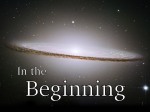Funnily enough, or stupidly depending on your perspective, I actually had no idea what this course was about when I enrolled in it. Using only the course title, “Special Topics in Creative Writing,” as all the information I needed, I ignorantly assumed the class to be another workshop with ordained topics or settings that had to be used. Possibly demanding I write a short story about an alien invasion taking place in Barcelona or other extraordinary pitches. Suffice to say, I was a little shocked to discover a central focus on “networking” devices, as I’ve grown accustomed to seeing them as in the business field (Sorry)! I’ve always shied from social networks, largely due to my reclusive nature, but I suppose this will be a worthwhile endeavor for my career as a writer and my other career fields. Twitter and Facebook are still far from winning me over, but the idea of keeping a blog and participating in an online community seems alluring.
Having never considered this element of the literary world, I found the articles this week to be quite enlightening. Immediately, I was drawn to the article, Why Authors Tweet, in hopes of uncovering an explanation as to why. It seemed much the same as what was mentioned in class, in regards to high-profile authors do not bother tweeting but the new entrants and middle tiered authors do. The active authors seem to genuinely enjoy tweeting their followers: playfully masquerading in character voices, bonding with shared viewpoints, and artfully constructing literary works within Twitter’s confining 140 character maximum. This was what I found surprising because that is precisely my struggle with social networking, having meaningful interactions with people I’ve never met in person. Hopefully something this class may alleviate.
Betsy Lerner’s book, The Forest for the Trees, held much of the same advice we’ve received through Ball State. It’s always humorous hearing about how well “professional” writers take criticism. As she stated in her book, the ultimate reason an author fails to become a recognized name is themselves. Meaning, when the author gives up, that’s the final straw. Us as students need to realize that even a harsh rejection can be seen as constructive criticism. Granted, and even Betsy mentioned, some agents are overly critical on some people and may in fact be “dumping” on those authors. That said, I still think a few harsh words shouldn’t be enough to discredit someone’s dream. If you can’t persevere, perhaps you weren’t meant to be a writer.
Sambuchino’s article on fundamentals for platform writing contained a hefty dose déjà vu. Like much of what we have read so far and what we have learned, many of the fundamentals mentioned by Sambuchino nearly mirror the networking advice we receive in the Miller College. What I have learned in my business classes seems to be transferable to building a foundation in the literary community. At least in this class, however, we will actually be putting these lessons into action. Fantastic!

